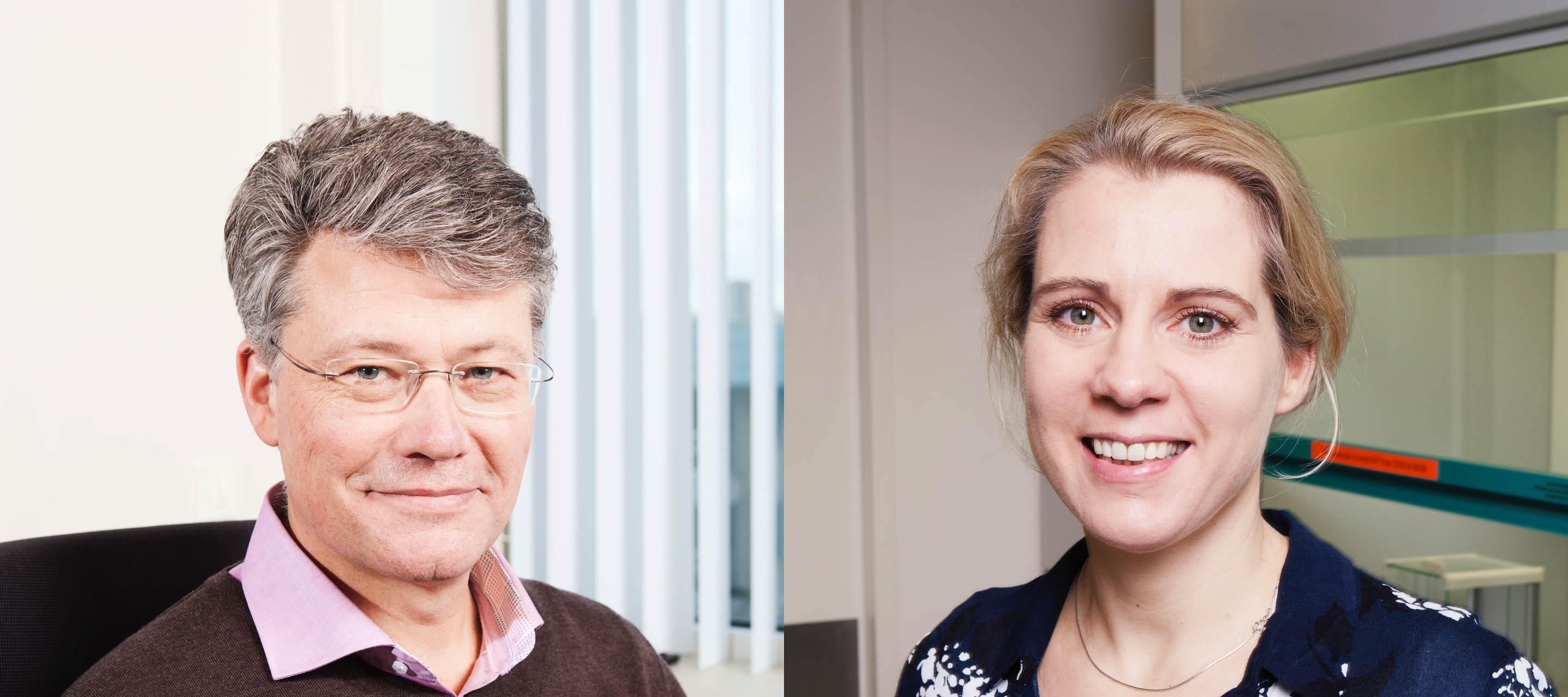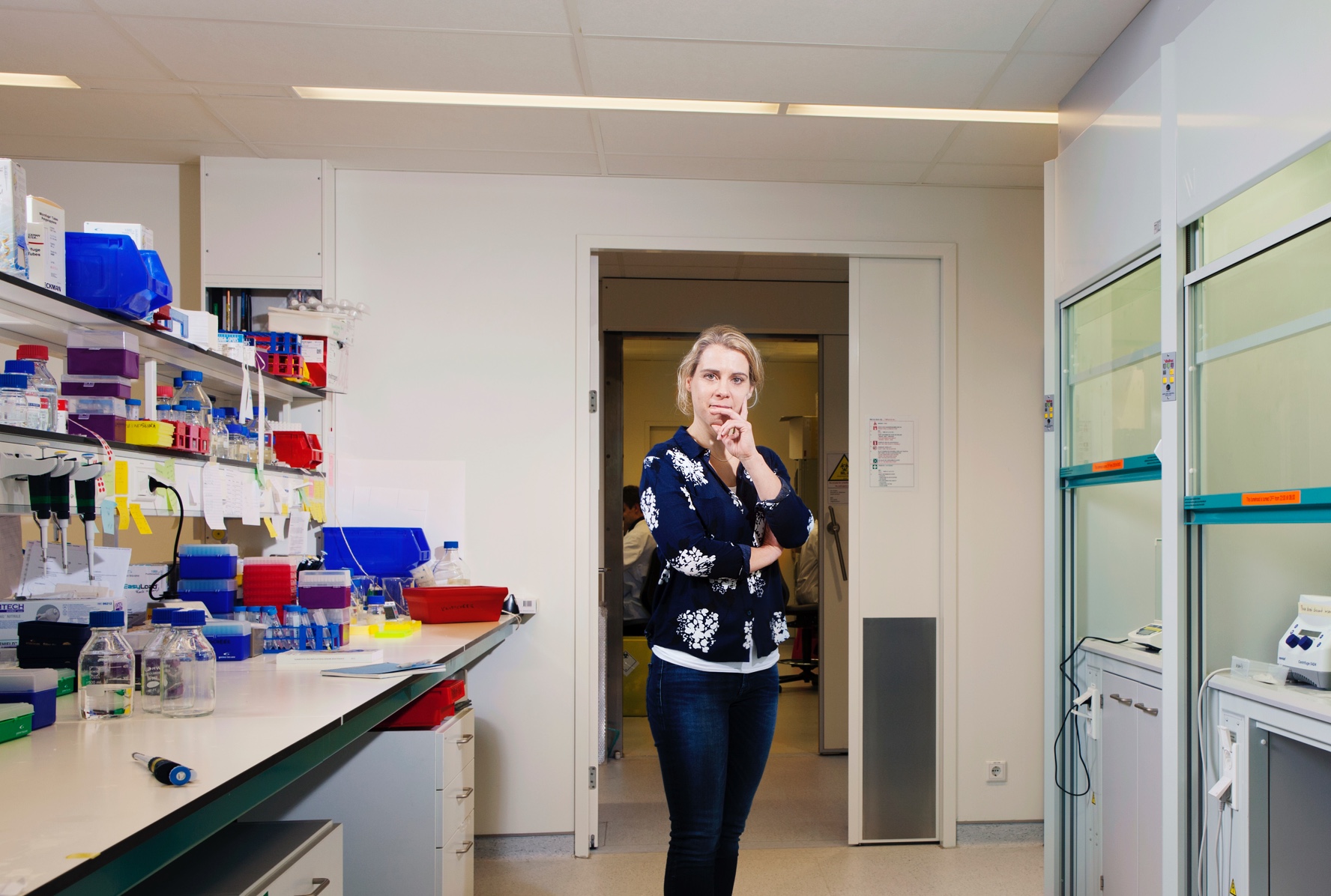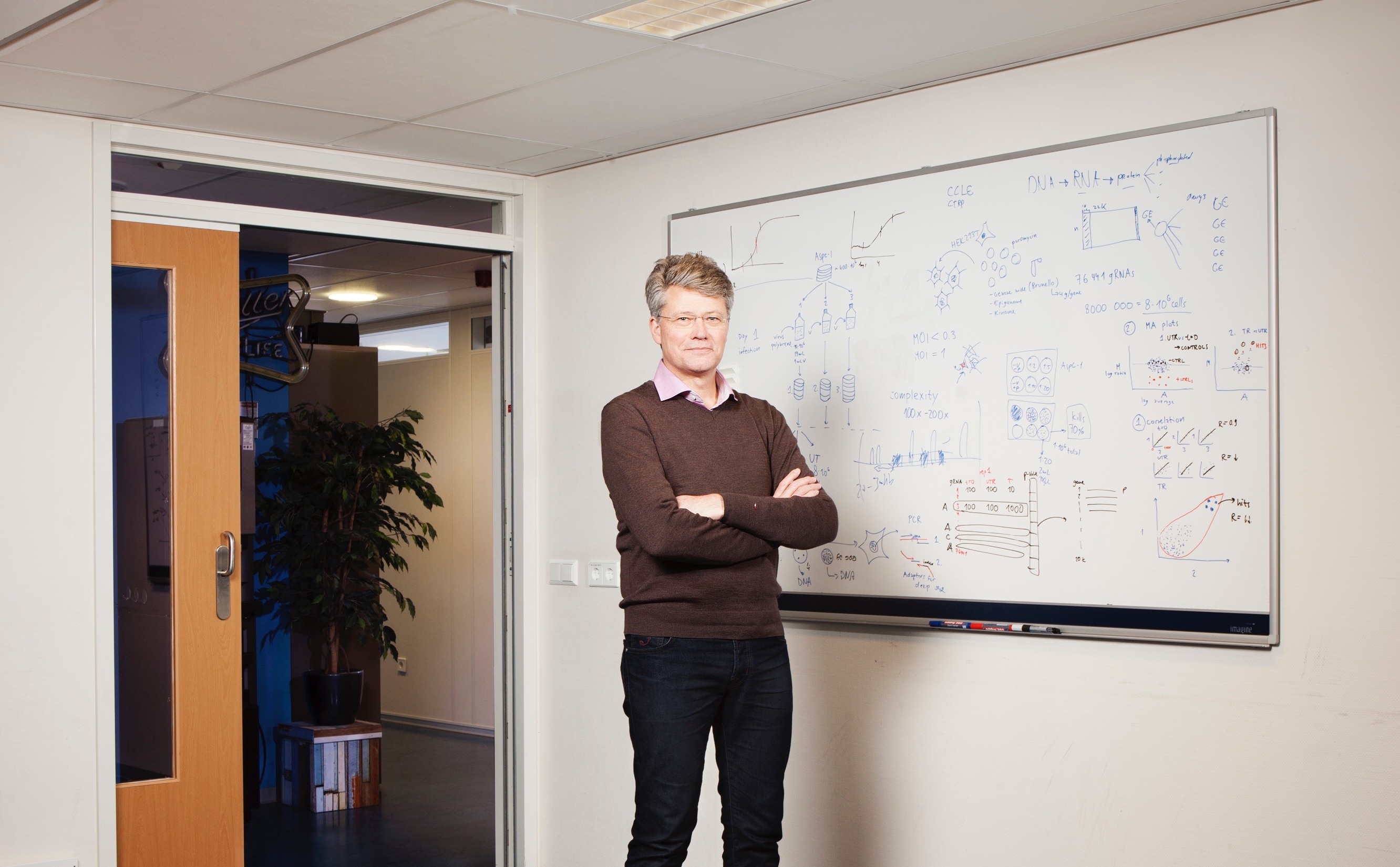What if researchers were given money along with the freedom to work as they wished, without the red tape?
Research is expensive, and providers of funding understandably expect a meticulous justification of everything that happens in the lab. But what if researchers were given money along with the freedom to work as they wished, without the red tape?

There’s a romantic image of a scientist as an idealist pursuing ideas and hunches independently of the outside world, trusting in his or her own brilliant mind. And finally, perhaps after years of toil, making that one great discovery.
But this hasn’t been the reality for a long time. Research costs money, and that money has to be obtained from government, a patients’ association or private industry. And its use has to be accounted for. Most Dutch grant applications require a detailed specification of the subject to be studied, who is to perform the research, and the expected outcomes. Funders also expect rapid results in the form of scientific articles.
All this pressure makes it harder to pursue an idea when the outcome is uncertain. The situation promotes “me-too research” – studies that confirm existing theories rather than charting new territory. Oncode aims to change this. It makes available grants that require minimal advance justification from scientists. This gives them the freedom to embark on creative, valuable research that carries a risk of failure.
What would Oncode scientists do with money they were free to spend as they wished? We asked three fundamental cancer researchers.

Puck Knipscheer
Oncode investigator at the Hubrecht Institute
“Repairing errors in DNA is an important mechanism in a cell for preventing cancer. A great many proteins are involved in this restoration, working together to repair damage in different ways. Many of these are still not at all well understood. We’re trying to learn more about them with the aid of extracts of frogs’ eggs, in which we mimic the damages and how they are repaired."
You’re forced to stay on the path you’re on, and it’s hard to look beyond it.
“I’d like to the opportunity to look into related fields, like cryo-electron microscopy, to find techniques that would be useful in my current research. At the moment it’s difficult to get funding to do that, because most of the times you have to be able to hand over results and can demonstrate that you’re an expert in that field. So you’re forced to stay on the path you’re on, and it’s hard to look beyond it."
“I’d also like to look at the proteins in the pathways I’m studying now in more detail than we currently do – really precisely, down to the amino acids, the individual building blocks. With a lot of these pathways, we know approximately how they work, and that’s considered sufficient. It’s hard to get a grant to take a closer look."

Lodewyk Wessels
Oncode Investigator and head of computational cancer biology at NKI (the Netherlands Cancer Institute)
“In my research, I’m attempting to make computer models of all the interactions that genes and proteins have with each other, in healthy cells as well as in cancer cells. In tumours, multiple genes and even entire genetic pathways are often affected. By studying how the different changes interact, we’re trying to understand cancer better. And ultimately, we also hope to be able to use the models to predict how patients will respond to a treatment or combination of treatments."
If I had an unrestricted grant, I’d use it to bring together different cutting-edge techniques.
“If I had an unrestricted grant, I’d use it to bring together different cutting-edge techniques. I’d like to take new ways of making measurements in single cells and combine them with CRISPR, a method that allows us to make extremely precise modifications to DNA, and then incorporate the analyses of those changes in the computer models. It will take time to get this working – everything has to be calibrated and optimized. It will be a while before results appear, and classic grants often don’t allow that kind of time. “I’d also use this combination of techniques to study what’s known as tumour heterogenicity. Tumours are anything but homogeneous; they have lots of little areas, each with its own set of mutations. This heterogenicity makes treatment difficult: drugs might kill 90% of a tumour but not work on one part with one specific mutation. And so it will grow into a new tumour. If we can gain a better understanding of heterogenicity, we may be able to modify treatment accordingly."
“I’d also like to find out why certain treatments don’t succeed. For instance, is the drug not getting to the right place in the tumour? Or is the tumour rejecting it? Right now, all we know is it doesn’t work. If we can find out why, we’ll be able to develop new medicines.”
Hugo Snippert
Oncode Investigator and assistant professor of molecular cancer research at UMC Utrecht
I see myself as more of an explorer than a researcher.
"I see myself as more of an explorer than a researcher. When I was working towards my PhD, I helped to develop organoids, three-dimensional miniature human organs, which are ideal for doing research into things like how cancer starts. Since then, I’ve been working to develop gene probes for these organoids. A gene probe is a type of sensor that lights up specific functions in a cell in a particular colour under the microscope. This allows you to do things like observe how different cell types, such as stem cells, develop in an organ over time, and how this sometimes goes wrong and results in a tumour, and what happens if you treat those with drugs."
“Because organoids, especially of human tissue, are still relatively new, there aren’t many analytical tools for them yet. These things still need to be developed. That’s a time-consuming process, and the results aren’t available right away. An unrestricted grant gives you an opportunity to start research that carries more risk. And that gives you more opportunities to develop into a unique group able to produce unique results that can bring unprecedented benefits for society.”